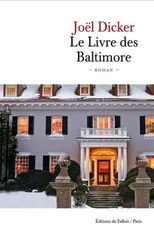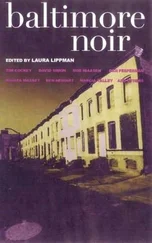Owen Wister - Lady Baltimore
Здесь есть возможность читать онлайн «Owen Wister - Lady Baltimore» весь текст электронной книги совершенно бесплатно (целиком полную версию без сокращений). В некоторых случаях можно слушать аудио, скачать через торрент в формате fb2 и присутствует краткое содержание. Жанр: Вестерн, на английском языке. Описание произведения, (предисловие) а так же отзывы посетителей доступны на портале библиотеки ЛибКат.
- Название:Lady Baltimore
- Автор:
- Жанр:
- Год:неизвестен
- ISBN:нет данных
- Рейтинг книги:5 / 5. Голосов: 1
-
Избранное:Добавить в избранное
- Отзывы:
-
Ваша оценка:
- 100
- 1
- 2
- 3
- 4
- 5
Lady Baltimore: краткое содержание, описание и аннотация
Предлагаем к чтению аннотацию, описание, краткое содержание или предисловие (зависит от того, что написал сам автор книги «Lady Baltimore»). Если вы не нашли необходимую информацию о книге — напишите в комментариях, мы постараемся отыскать её.
Lady Baltimore — читать онлайн бесплатно полную книгу (весь текст) целиком
Ниже представлен текст книги, разбитый по страницам. Система сохранения места последней прочитанной страницы, позволяет с удобством читать онлайн бесплатно книгу «Lady Baltimore», без необходимости каждый раз заново искать на чём Вы остановились. Поставьте закладку, и сможете в любой момент перейти на страницу, на которой закончили чтение.
Интервал:
Закладка:
Quite suddenly the true light flashed upon me. I had been slow-sighted indeed! So that was what she had come here for to-day! Miss Hortense was going to pay her compliments to Miss La Heu. I believe that my sight might still have been slow but for that miraculous sweetness upon the face of Eliza. She was ready for the compliments! Well, I sat expectant — and disappointment was by no means my lot.
Hortense finished her lunch. "And so this interesting place is where you work?"
Eliza, thus addressed, assented.
"And you furnish wedding cakes also?"
Eliza was continuously and miraculously sweet. "The Exchange includes that."
"I shall hope you will be present to taste some of yours on the day it is mine."
"I shall accept the invitation if my friends send me one."
No blood flowed from Hortense at this, and she continued with the same smooth deliberation.
"The list is of necessity very small; but I shall see that it includes you."
"You are not going to postpone it any more, then?"
No blood flowed at this, either. "I doubt if John — if Mr. Mayrant — would brook further delay, and my father seems stronger, at last. How much do I owe you for your very good food?"
It is a pity that a larger audience could not have been there to enjoy this skilful duet, for it held me hanging on every musical word of it. There, at the far back end of the long room, I sat alone at my table, pretending to be engaged over a sandwich that was no more in existence — external, I mean — and a totally empty cup of chocolate. I lifted the cup, and bowed over the plate, and used the paper Japanese napkin, and generally went through the various discreet paces of eating, quite breathless, all the while, to know which of them was coming out ahead. There was no fairness in their positions; Hortense had Eliza in a cage, penned in by every fact; but it doesn't do to go too near some birds, even when they're caged, and, while these two birds had been giving their sweet manifestations of song, Eliza had driven a peck or two home through the bars, which, though they did not draw visible blood, as I have said, probably taught Hortense that a Newport education is not the only instruction which fits you for drawing-room war to the knife.
Her small reckoning was paid, and she had drawn on one long, tawny glove. Even this act was a luxury to watch, so full it was of the feminine, of the stretching, indolent ease that the flesh and the spirit of this creature invariably seemed to move with. But why didn't she go? This became my wonder now, while she slowly drew on the second glove. She was taking more time than it needed.
"Your flowers are for sale, too?"
This, after her silence, struck me as being something planned out after her original plan. The original plan had finished with that second assertion of her ownership of John (or, I had better say, of his ownership in her), that doubt she had expressed as to his being willing to consent to any further postponement of their marriage. Of course she had expected, and got herself ready for, some thrust on the postponement subject.
Eliza crossed from behind her counter to where the Exchange flowers stood on the opposite side of the room and took some of them up.
"But those are inferior," said Hortense. "These." And she touched rightly the bowl in which my roses stood close beside Eliza's ledger.
Eliza paused for one second. "Those are not for sale."
Hortense paused, too. Then she hung to it. "They are so much the best." She was holding her purse.
"I think so, too," said Eliza. "But I cannot let any one have them."
Hortense put her purse away. "You know best. Shall you furnish us flowers as well as cake?"
Eliza's sweetness rose an octave, softer and softer. "Why, they have flowers there! Didn't you know?"
And to this last and frightful peck through the bars Hortense found no retaliation. With a bow to Eliza, and a total oblivion of me, she went out of the Exchange. She had flaunted "her" John in Eliza's face, she had, as they say, rubbed it in that he was "her" John;—but was it such a neat, tidy victory, after all? She had given away the last word to Eliza, presented her with that poisonous speech which when translated meant —
"Yes, he's 'your' John; and you're climbing up him into houses where you'd otherwise be arrested for trespass." For it was in one of the various St. Michael houses that the marriage would be held, owing to the nomadic state of the Rieppes.
Yes, Hortense had gone altogether too close to the cage at the end, and, in that repetition of her taunt about "furnishing" supplies for the wedding, she had at length betrayed something which her skill and the intricate enamel of her experience had hitherto, and with entire success, concealed — namely, the latent vulgarity of the woman. She was wearing, for the sake of Kings Port, her best behavior, her most knowing form, and, indeed it was a well-done imitation of the real thing; it would last through most occasions, and it would deceive most people. But here was the trouble: she was wearing it; while, through the whole encounter, Eliza La Heu had worn nothing but her natural and perfect dignity; yet with that disadvantage (for good breeding, alas! is at times a sort of disadvantage, and can be battered down and covered with mud so that its own fine grain is invisible) Eliza had, after a somewhat undecisive battle, got in that last frightful peck! But what had led Hortense, after she had come through pretty well, to lose her temper and thus, at the finish, expose to Eliza her weakest position? That her clothes were paid for by a Newport lady who had taken her to Worth, that her wedding feast was to be paid for by the bridegroom, these were not facts which Eliza would deign to use as weapons; but she was marrying inside the doors of Eliza's Kings Port, that had never opened to admit her before, and she had slipped into putting this chance into Eliza's hand — and how had she come to do this?
To be sure, my vision had been slow! Hortense had seen, through her thick veil, Eliza's interest in John in the first minute of her arrival on the bridge, that minute when John had run up to Eliza after the automobile had passed over poor General. And Hortense had not revealed herself at once, because she wanted a longer look at them. Well, she had got it, and she had got also a look at her affianced John when he was in the fire-eating mood, and had displayed the conduct appropriate to 1840, while Charley's display had been so much more modern. And so first she had prudently settled that awkward phosphate difficulty, and next she had paid this little visit to Eliza in order to have the pleasure of telling her in four or five different ways, and driving it in deep, and turning it round: "Don't you wish you may get him?"
"That's all clear as day," I said to myself. "But what does her loss of temper mean?"
Eliza was writing at her ledger. The sweetness hadn't entirely gone; it was too soon for that, and besides, she knew I must be looking at her.
"Couldn't you have told her they were my flowers?" I asked her at the counter, as I prepared to depart. Eliza did not look up from her ledger. "Do you think she would have believed me?"
"And why shouldn't—"
"Go out!" she interrupted imperiously and with a stamp of her foot. "You've been here long enough!"
You may imagine my amazement at this. It was not until I had reached Mrs. Trevise's, and was sitting down to answer a note which had been left for me, that light again came. Hortense Rieppe had thought those flowers were from John Mayrant, and Eliza had let her think so.
Yes, that was light, a good bright light shed on the matter; but a still more brilliant beam was cast by the up-country bride when I came into the dining-room. I told her myself, at once, that I had taken flowers to Miss La Heu; I preferred she should hear this from me before she learned it from the smiling lips of gossip. It surprised me that she should immediately inquire what kind of flowers?
Читать дальшеИнтервал:
Закладка:
Похожие книги на «Lady Baltimore»
Представляем Вашему вниманию похожие книги на «Lady Baltimore» списком для выбора. Мы отобрали схожую по названию и смыслу литературу в надежде предоставить читателям больше вариантов отыскать новые, интересные, ещё непрочитанные произведения.
Обсуждение, отзывы о книге «Lady Baltimore» и просто собственные мнения читателей. Оставьте ваши комментарии, напишите, что Вы думаете о произведении, его смысле или главных героях. Укажите что конкретно понравилось, а что нет, и почему Вы так считаете.










